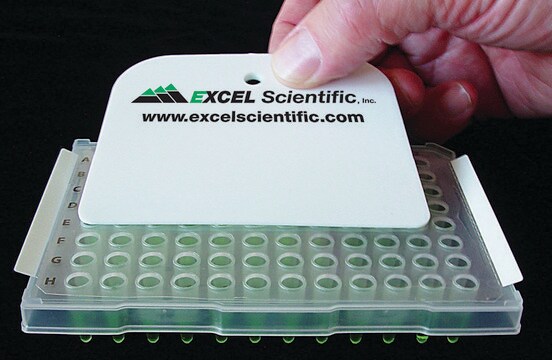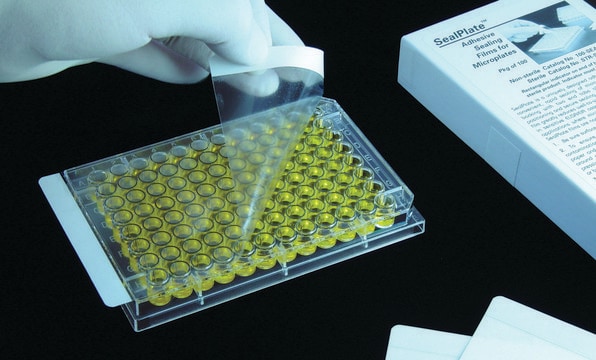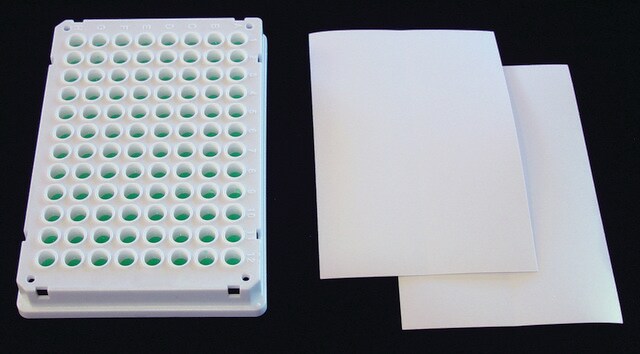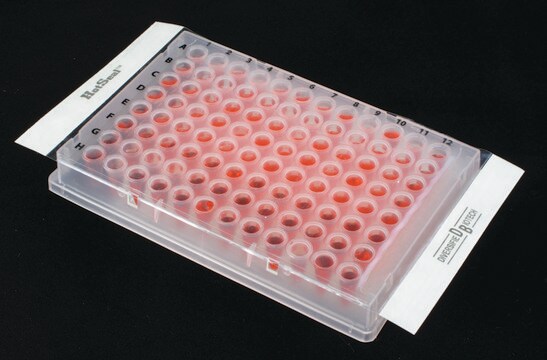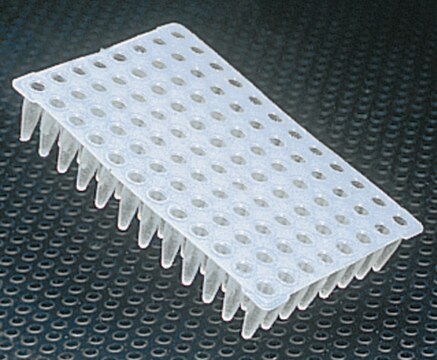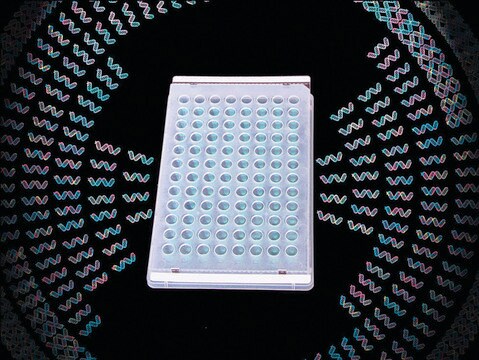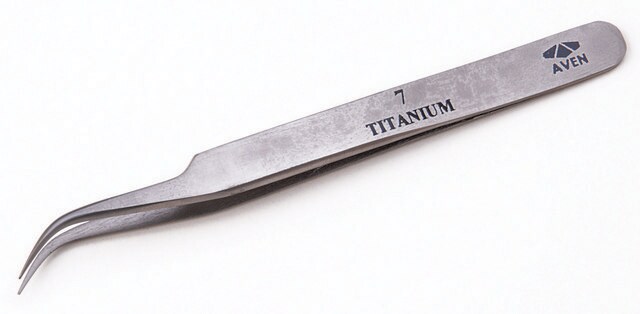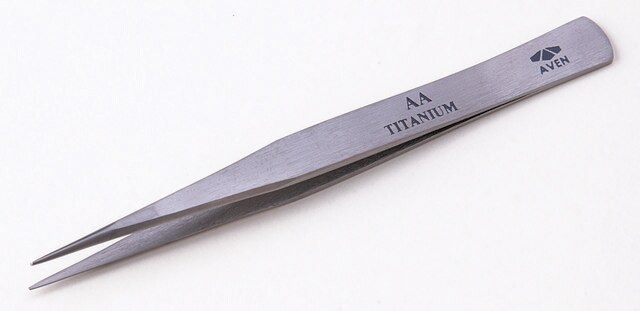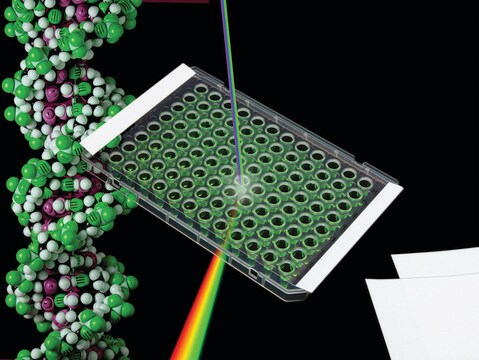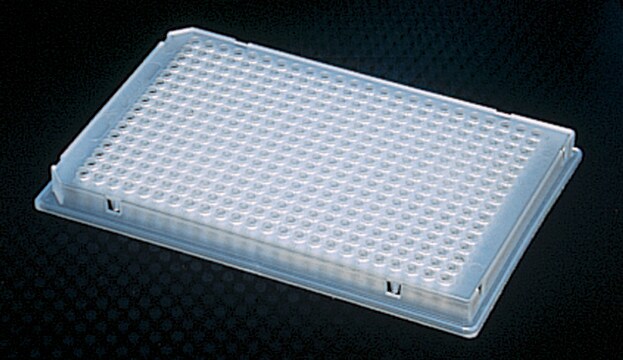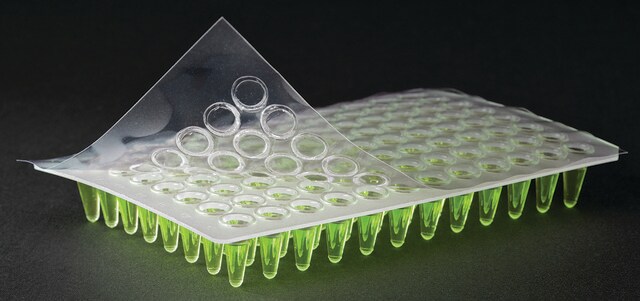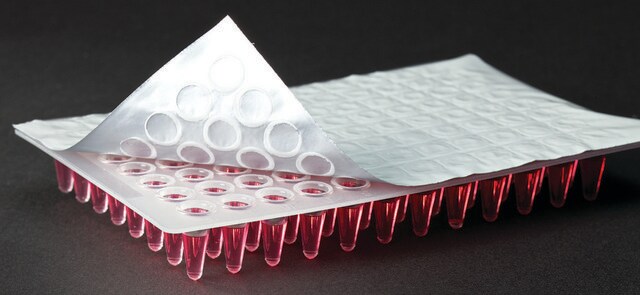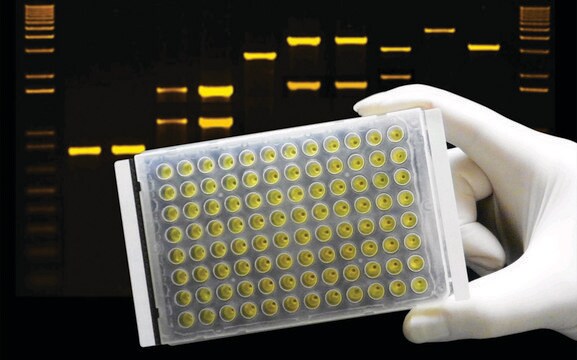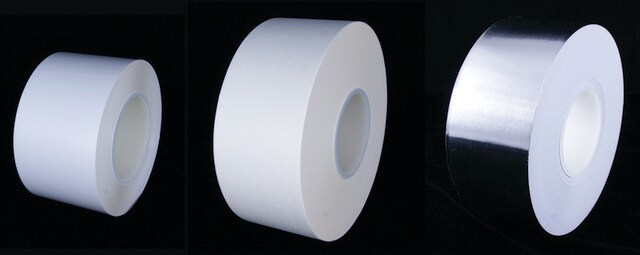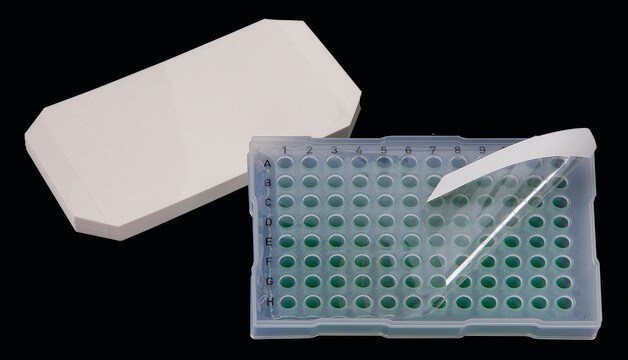Z734438
ThermalSeal RTS™ Sealing Films
for qPCR, storage & crystallization, non-sterile
Synonym(s):
qPCR plate seal, storage plate seal
About This Item
Recommended Products
material
polyolefin film
silicone/adhesive
sterility
non-sterile
packaging
pack of 100 ea
manufacturer/tradename
Excel Scientific TSS-RTQ-100
technique(s)
PCR: suitable
qPCR: suitable
L × W
76.2 mm × 133.4 mm
W × L
7.62 cm × 13.34 cm
color
clear
Looking for similar products? Visit Product Comparison Guide
General description
- High optical clarity
- Minimal to no autofluorescence
- Chemically inert; no extractables except at extreme pH
- DMSO resistant for HTS
- Heat resistant, recommended for temperatures from
- -70°C to +100°C
- Certified DNase, RNase, and Nucleic Acid free
- Fit within raised plate rim to prevent loss of seal due to film lifting
- Silicone adhesive forms the strongest available seal for evaporation prevention
- Non-tacky adhesive layer simplifies handling of film prior to sealing
ThermalSeal RTS™ films are sized to fit within the edges of raised-rim 96-well plates. Their consistent high optical clarity makes possible reproducible, reliable, and consistent DNA amplification measurements and crystal detection. Two end tabs assist in positioning the film on the plate, and the non-tacky adhesive surface simplifies handling. Easy removal of the end tabs at perforated boundaries prevents lifting and higher evaporation rates that can occur with films that overlap the plate rim.
Dimensions 76.2 by 133.4 mm. With end tabs removed, length is 113.0 mm.
- High optical clarity
- Minimal to no autofluorescence
- Chemically inert; no extractables except at extreme pH
- DMSO resistant for HTS
- Heat resistant, recommended for temperatures from
- -70°C to +100°C
- Certified DNase, RNase, and Nucleic Acid free
- Fit within raised plate rim to prevent loss of seal due to film lifting
- Silicone adhesive forms the strongest available seal for evaporation prevention
- Non-tacky adhesive layer simplifies handling of film prior to sealing
Legal Information
Choose from one of the most recent versions:
Certificates of Analysis (COA)
Don't see the Right Version?
If you require a particular version, you can look up a specific certificate by the Lot or Batch number.
Already Own This Product?
Find documentation for the products that you have recently purchased in the Document Library.
Customers Also Viewed
Protocols
The most common application for qPCR is the measurement of a gene transcript or copy number quantity relative to one or more reference genes using probe detection.
Reverse transcription (RT) is the process of converting RNA to cDNA using a reverse transcriptase enzyme and dNTPs.
Although quantitative PCR uses the same basic concept as traditional PCR, the reactions differ in that the amplicons are generally smaller and are detected indirectly using an additional dye or labeled probe or primer.
reverse transcription is the analysis of gene expression to measure concentration mrna a gene. there are several challenges such analyses, as differences in halflife between different transcripts, temporal patterns and lack correlation protein.
Our team of scientists has experience in all areas of research including Life Science, Material Science, Chemical Synthesis, Chromatography, Analytical and many others.
Contact Technical Service